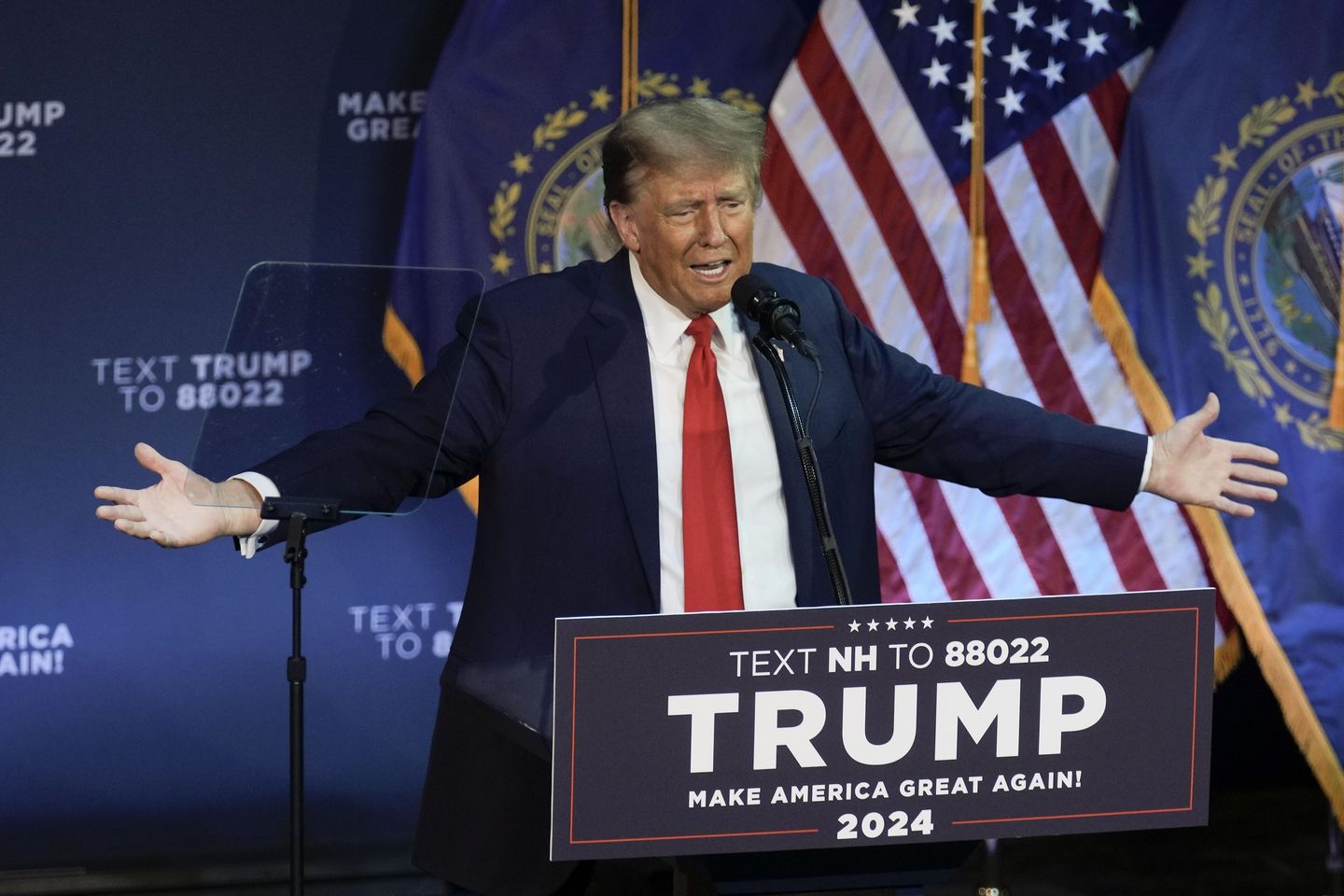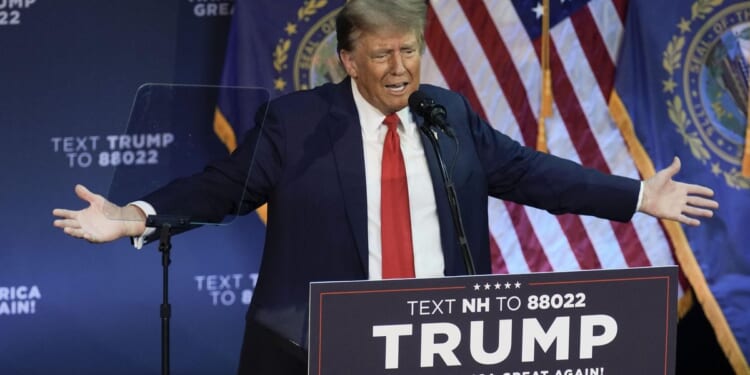
Advocates for children who have sued the federal government and several states over climate change are now urging the Supreme Court to remember future generations in considering whether to allow former President Trump on the 2024 ballot.
They say children and “yet-to-be-born Americans” will be left with a democracy led by an insurrectionist if the court doesn’t enforce Section 3 of the 14th Amendment, which bars anyone who participated in an insurrection from holding public office.
Our Children’s Trust and two law professors focusing on children’s rights filed an amicus brief in Mr. Trump’s challenge to the Colorado Supreme Court’s decision to remove his name from 2024 ballots over the 2021 riot at the U.S. Capitol.
The friend-of-the-court brief wasn’t filed on behalf of any party, but it stresses the damage done if the presidency is allowed to be filled by someone who led an insurrection.
“Even though children and future generations are not parties to this case, they will endure its long-lasting effect from the 2024 presidential election certainly, but also in the decades to follow if their democratic institutions cannot effectively respond to future attempts at “insurrection or rebellion” against the Constitution of the United States,” the brief reads.
“The perpetuity of the Republic depends, in part, on the power of the Court to interpret and enforce the counter-majoritarian constitutional guardrails, like Section 3, to ensure the nation our children and future generations inherit is not governed by those who ‘shall have engaged in insurrection or rebellion against the same, or given aid and comfort to the enemies thereof.’”
The filing stood out among the dozens of amicus briefs filed in the dispute. In a 4-3 ruling, the state’s high court said Colorado’s secretary of state couldn’t put Mr. Trump on the ballot because he is unqualified due to his challenge to the 2020 election and Section 3 of the 14th Amendment.
The majority of Colorado justices acknowledged they were breaking new legal ground. But they said their reading of the U.S. Constitution indicated Mr. Trump was part of an insurrection in which a pro-Trump mob delayed the Congress’ counting of the Electoral College votes on Jan. 6, 2021.
Mr. Trump is facing several indictments, but he has not been charged with or convicted of leading an insurrection during the attack on the U.S. Capitol.
The U.S. Supreme Court granted Mr. Trump’s request to review the Colorado decision. Oral arguments are scheduled for Feb. 8.
Section 3 of the 14th Amendment states: “No person shall be a Senator or Representative in Congress, or elector of President and Vice-President, or hold any office, civil or military, under the United States, or under any State, who, having previously taken an oath, as a member of Congress, or as an officer of the United States, or as a member of any State legislature, or as an executive or judicial officer of any State, to support the Constitution of the United States, shall have engaged in insurrection or rebellion against the same, or given aid or comfort to the enemies thereof.”
Mr. Trump’s lawyers say the presidency isn’t subject to the clause and, even if it were, Mr. Trump did not participate in an insurrection in his challenge to the 2020 election results.
The majority of the eyed amicus briefs filed in the legal battle came from advocate groups or law professors with a background in constitutional or election law, not from children right’s experts.
A spokesperson for Our Children’s Trust and Catherine Smith of Sturm College of Law and Jeremiah Chin of Seattle University, who filed the unusual brief, did not immediately respond to a request for comment.
Mike Davis, president of the Article III Project and a former clerk to Justice Neil M. Gorsuch, said the justices pay close attention to the best qualified amicus filings and he doubts this will be one of them.
“This is a childish amicus brief filed by a childish group that will not be taken seriously by the Supreme Court,” Mr. Davis said. “This case is a bug zapper for every fringe, left-wing group trying to get into the limelight.
“The same leftists who want to kill babies up until the moment of birth suddenly want to care about their voting rights 18 years from now?” he said.
Bruce A. Boyer, director at Loyola ChildLaw Clinic, said it isn’t unusual for a brief like this to be filed on behalf of either party. They’re goal is likely to remind the justices of the political consequences that should follow in future generations if they don’t follow the law, which Mr. Boyer says leads to “only one possible outcome … disqualification.”
“The brief asks the court to be conscious of the long-term consequences of breaking faith with our political democracy. It does so by invoking the rights and interests of our children and generations to come, who will suffer enduring harm if the Court fails to find the courage to apply the plain language of the Constitution faithfully,” Mr. Boyer said.
“Labeling the brief as in support of neither party is a legal technicality grounded in the fact that the amici need not speak to the merits of the claim in order to make their point. Despite this, it is clearly supportive of both the logic and the outcome of the Colorado Supreme Court decision,” he added.
The case is Donald J. Trump, Petitioner v. Norma Anderson, et al. A decision could come at any time after the justices hear arguments on Feb. 8. Legal experts expect a quick ruling since the GOP primary is ongoing.












